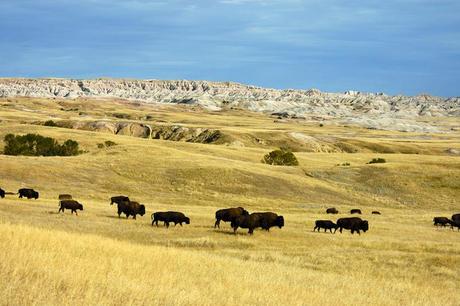Having been away for a while on a much needed camping excursion to the glorious Pine Ridge of Nebraska and Black Hills of South Dakota, the blogging has taken a backseat and links have piled up. It’s time to clear the cue with odds and ends that deserve fuller commentary but won’t get it.
Let’s start with Daniel Barenboim’s NYRB piece “Wagner and the Jews.” It starts a bit slow with cognescenti music talk but then picks up serious steam on issues of Jewish identity, which Barenboim thinks are unresolved:
The entire Wagner debate in Israel is linked to the fact that steps toward a Jewish Israeli identity have not been taken. All concerned continue to cling to past associations that were absolutely understandable and justified at the time. It is as if they wanted, by so doing, to remind themselves of their own Judaism. Perhaps this is the same fact that does not allow many Israelis to see the Palestinians as citizens with equal rights.
When one continues to uphold the Wagner taboo today in Israel, it means, in a certain respect, that we are giving Hitler the last word, that we are acknowledging that Wagner was indeed a prophet and predecessor of Nazi anti-Semitism, and that he can be held accountable, even if only indirectly, for the final solution.
This view is unworthy of Jewish listeners. They should rather be influenced by such great Jewish thinkers as Spinoza, Maimonides, and Martin Buber than by half-baked dogmas.
Are languages shaped by geography? What a great question. A recent study, which I haven’t yet read, suggests they are. Assuming for the sake of argument that the findings are good, we might reasonably suppose that hunting and gathering languages have been shaped by the geographies of the those lifeways. This is precisely what Hugh Brody argues in The Other Side of Eden: Hunters, Farmers and the Shaping of the World. This may have also been suggested by Edward Sapir, though I can’t recall the source or give a citation.
If you are looking for some stimulating summer reads, Robin Lane Fox commends five books on religious and social history of an often neglected period of antiquity:
Before we start discussing your five books, can you tell me why this particular time in history, from 200 BC to AD 400, interests you?
This is the period when we see the shift from a pre-Christian pagan world to a Christian world out of which the roots of our Christianity arose – first out of the Jewish religion, and then as a force increasingly in its own right. The consequent changes in world view are still essential to our outlook on the world. Whatever personal faith (or lack of it) you may have, only by studying this period can you get behind Christian values or the values of our other major religions, and look at them from a historical point of view and realize that they were historically formed, that they are not the only values and are not obligatory.
If Fox’s picks don’t strike you as summer fare, my recent post on horse-totems prompted me to pick up William Nack’s Secretariat. It’s one of those books that engrosses and can be read in a day.
Over at aeon, there are two good offerings. In the first, Ronan McCrea contends that Muslim migration into Europe is prompting ever greater secularization. Along the ironic way, we are served a good history lesson:
Secularism in Europe has been in part influenced by the original recognition in Christian theology of separate secular and religious realms (the Bible’s injunction to ‘render unto Caesar’). But the distinctive European ‘settlement’ on religion stems from the religious wars of the 16th and 17th centuries. The suffering caused by these conflicts across western and northern Europe brought a strong desire for political norms and structures that could end the misery and instability caused by religious contestation for political power. The Peace of Westphalia — a series of treaties concluded in 1648 — established the principle that sovereign states would respect each other’s boundaries and differing state religions. This acceptance of the permanence and legitimacy of religious diversity between (if not within) European states combined with the work of thinkers such as Grotius, Hobbes, Locke and Hume to provide Europe with ways of thinking and speaking about politics that were separate from religion.
In the second, Michael Ruse discusses the history of teleological thinking in biology. Near the end, he suggests that the question of progress in evolution is unresolved. I don’t think it is, and have presented the point in this post and others. Regardless, Ruse’s piece is a nice primer.
Finally, Salon brightly surveyed several recent books on Spinoza back in 2006. I somehow missed this but just started Mathew Stewart’s The Courtier and The Heretic: Leibniz, Spinoza, and the Fate of God in the Modern World. Though I’m not too far along, it counts as a good aestas read.
As for my recent excursion, scenes like this won’t soon be forgotten:


